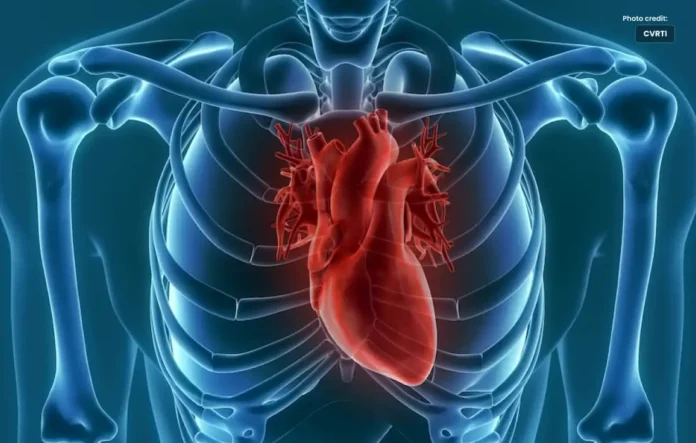Congestive heart failure is a chronic condition that causes fatigue.
The chronic illness known as congestive heart failure (CHF) is characterized by the heart’s incapacity to pump blood efficiently, which results in symptoms like exhaustion, breathlessness, and fluid retention.
Even while being diagnosed with congestive heart failure (CHF) might be frightening, there are several techniques and lifestyle modifications that can help people manage their illness and enhance their quality of life.
Read More Informative Articles in Urdu
Knowledge of Congestive Heart Failure
It’s important to comprehend the fundamental mechanics of CHF before diving into management techniques. In essence, CHF is caused by an inefficient cardiac pump, which causes fluid to accumulate in the body.
Breathing difficulties, exhaustion, and swelling in the legs, ankles, or abdomen are some of the symptoms that can result from this fluid accumulation.
Medication Administration
Medication is essential for the management of congestive heart failure (CHF) because it improves heart pump function, lowers fluid accumulation, and regulates blood pressure. Typical drugs for congestive heart failure include:
- Angiotensin-Converting Enzyme (ACE) Inhibitors: These drugs aid in blood vessel relaxation, which facilitates the heart’s blood pumping action.
- Beta-Blockers: By lowering blood pressure and heart rate, beta-blockers lessen the workload on the heart.
- Diuretics: Diuretics lessen edema and fluid accumulation by assisting the body in getting rid of extra fluid.
- Aldosterone Antagonists: By preventing the effects of aldosterone, a hormone that promotes fluid retention, these drugs can also aid in the reduction of fluid accumulation.
People with CHF must take their prescription drugs exactly as directed and see their doctor on a frequent basis to check their status and change treatment as necessary.
Changes in Lifestyle
For CHF to be effectively managed, lifestyle changes are essential in addition to drug control. These could consist of:
- Healthy Diet: A diet reduced in saturated fats and sodium can help prevent fluid retention and enhance heart health in general. Make sure you eat lots of fruits, veggies, whole grains, and lean meats.
- Frequent Exercise: Regular physical activity can enhance heart health, boost endurance, and lessen CHF symptoms, but it’s crucial to speak with a doctor before beginning an exercise regimen.
- Weight control: Keeping a healthy weight can assist lower cardiac strain and enhance general cardiovascular health. Losing extra weight helps also help people with CHF cope with symptoms like exhaustion and dyspnea.
- Quitting Smoking: Smoking increases the risk of heart disease and exacerbates the symptoms of congestive heart failure. Giving up smoking can enhance general health and heart function.
- Limiting Alcohol Consumption: Drinking too much alcohol can weaken the heart’s muscle and cause fluid retention. Reducing alcohol consumption can help strengthen the heart and lessen CHF symptoms.
Keeping an Eye on Symptoms
For people with CHF to identify changes in their health early and avoid consequences, regular symptom monitoring is crucial.
It’s critical to monitor symptoms including dyspnea, edema, exhaustion, and weight fluctuations. Reporting any noteworthy changes to a healthcare physician right away is advised.
Assistance and Instruction
It can be difficult to live with CHF on both a physical and emotional level. It’s critical that people with CHF and those who care for them seek out information and assistance in order to gain a better understanding of the illness and acquire coping mechanisms.
Counseling services, instructional materials, and support groups can all offer insightful support and direction for successfully managing CHF.
Diagnosis
Heart failure cannot be diagnosed with a single test. Your family history, medical history, physical examination, and test findings will all be taken into account by your physician. These examinations may consist of:
- An electrocardiogram, or EKG, is a painless test that provides details about your heart’s electrical activity, such as its pulse rate and history of heart attacks.
- A chest X-ray shows the heart, lungs, and other tissues in the chest and indicates whether the heart is enlarged or whether there are any indications of lung disease.
- BNP blood test: The hormone known as B-type natriuretic peptide (BNP) is a predictor of the severity and outlook of heart failure.
- An ultrasound image of the heart is called an echocardiogram. It is not the same as another test called a Doppler ultrasonography, which shows the heart and lungs’ blood flow.
- Holter monitor: A portable gadget that you wear for a day or two that measures the electrical activity of your heart.
- A stress test for exercise involves riding a stationary bicycle or walking on a treadmill to measure how well your heart functions under pressure. In the event that you are unable to complete an exercise test, you can produce stress by giving a medication that has a comparable effect.
Conclusion
Congestive heart failure is a chronic illness that needs to be managed continuously, but there are many techniques and way of life adjustments that can make the illness easier to manage. People with CHF can lower their risk of problems and enhance their quality of life by monitoring their symptoms, monitoring their prescription regimens, adopting good lifestyle practices, and seeking assistance. Effective management of chronic heart failure (CHF) requires active participation in self-care and close collaboration with healthcare practitioners.
Also read this: Cardioversion Restoring Rhythmic Harmony to the Heart




